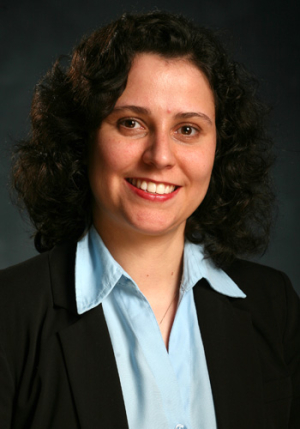Debora Rodrigues, assistant professor of civil and environmental engineering, has won a prestigious CAREER Award from the National Science Foundation (NSF).
CAREER Awards are given to junior-level faculty with the goal of helping them launch successful research and educational careers.
The grant, worth up to $450,000 over a five-year period, will allow Rodrigues to study the environmental impact of nano-scale materials that utilize graphene, single-atom thick sheets of carbon. Though graphene is one of the most promising nanomaterials in existence, its impact on the environment is unclear.
“The nanotechnology industry is growing exponentially. They’re finding so many new applications. We need to be careful about what we are producing and releasing to the environment,” said Rodrigues.
One of Rodrigues’ goals is to explore whether and how nanomaterials impact bacteria that are essential to the treatment of wastewater. Doing this effectively will require extensive field work, she noted.
“The environmental samples tend to be very complex in the sense that they have different water chemistries, temperature changes, and many other environmental factors acting at the same time,” said Rodrigues. “This might change the material properties and how it interacts with microorganisms. All these environmental factors need to be taken into consideration.”
In addition to studying the environmental impact of nanomaterials, Rodrigues is developing technologies that utilize graphene and other nanoparticles. She recently published a paper on an antimicrobial coating she developed that uses 94 percent to 97 percent fewer nanoparticles than similar coatings but is equally effective at killing bacteria.
Rodrigues plans to combine this experimental work with efforts to educate high school science teachers on nanotechnology. She is a co-principal investigator on a Research Experience for Teachers grant from the NSF that will bring teachers into several laboratories, including hers, during summer breaks to participate in research efforts and learn about this emerging field. Ultimately, they will be able to share what they learn with their middle and high school students, she said.
“I want to combine my research with the educational part to give teachers the chance to learn more about the toxicity and the affects of these nanomaterials,” she said. “I want to help them learn not just about the applications, but the implications as well.”
